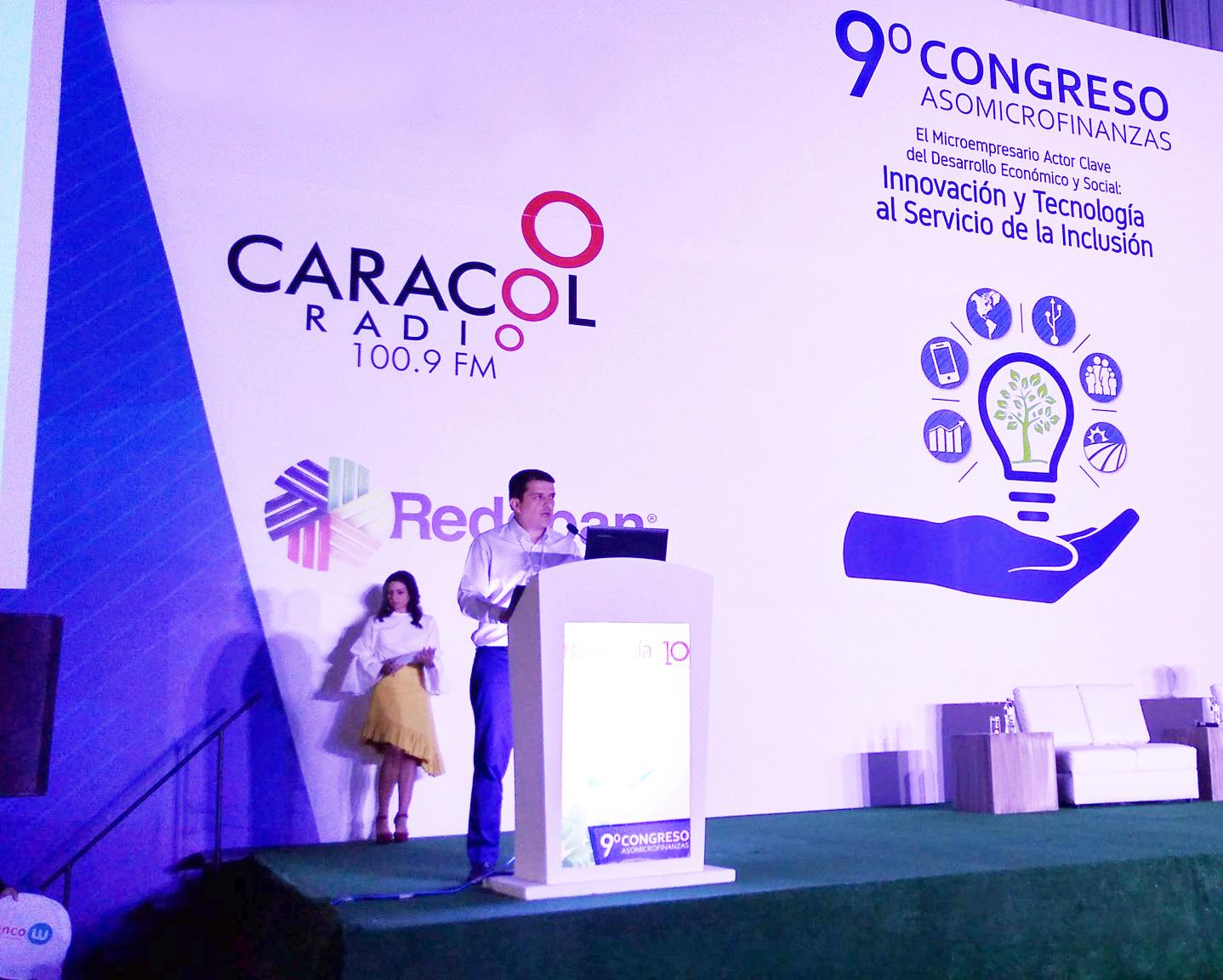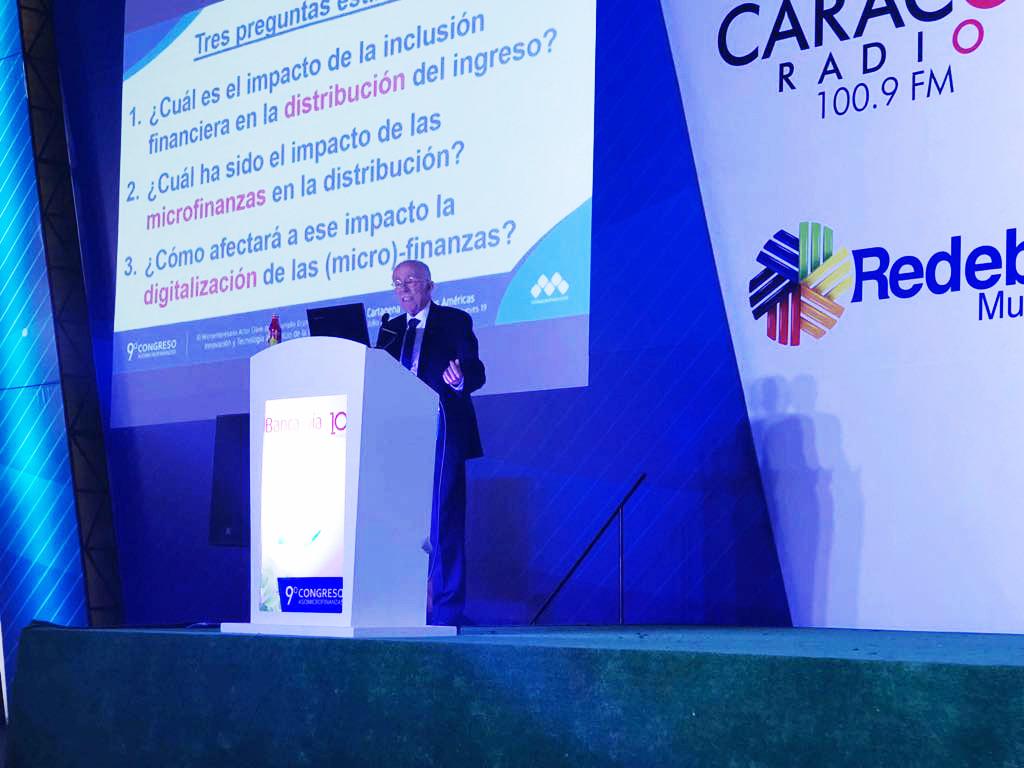This year, the Colombian Association of Microfinance Institutions (Asomicrofinanzas) held its conference in Cartagena de Indias (Colombia) under the title “Micro-entrepreneurs, key agents for economic and social development: Innovation and technology at the service of inclusion’. It was the ninth of what has become an annual event, and was inaugurated by the executive president of Bancamía, Miguel Ángel Charria, who was invited to give the welcome speech.
“The microfinance industry is becoming more and more important in the lives of millions of Colombians who find themselves excluded because of their economic, social or geographic situations, limiting their access to opportunities. Nearly 3 million microcredits by the members of Asomicrofinazas; with these figures, we can now say that significant progress has been made,” explained the president of the BBVA Microfinance Foundation’s Colombian institution at the event.
- Bancamía’s executive president, Miguel Ángel Charria, during his speech
- BBVAMF’s president of the Board of Trustees, Claudio González-Vega, during his speech
In his speech, he also emphasized how microfinance institutions provide access to financial products and services that help “enhance the quality of life for microentrepreneurs and their families, reduce poverty and contribute to the development of their communities.”
Jorge Castaño, head of the Superintendencia Financiera (Colombian financial regulator), and María Clara Hoyos, executive president of Asomicrofinanzas, also gave lectures alongside Mr Charria at the opening session of the conference that was split up into five meetings.
The first meeting focused on social and financial inclusion, where the chairman of the BBVAMF Board of Trustees, Claudio González-Vega, posed a key question in his keynote speech on innovation and technology in microfinance, entitled “Who wins and who loses?” He referred to digitalization as a powerful tool to reduce transaction costs and improve income distribution. However, he pointed out that technology “must complement and strengthen a personalized relationship with the client, not replace it.” He also urged governments, regulators and operators on the financial markets to exert effort to prevent a digital divide or other kinds of gaps that would worsen inequality.
Digital transformation, fostering communications and information technologies, fintechs, development banks and financial inclusion were also among the subjects discussed; an event that put a spotlight on technology, making it this year’s the main subject and primary objective.



